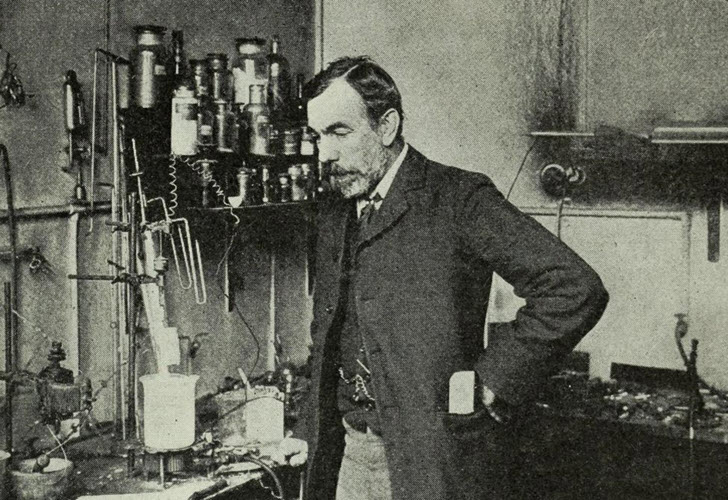William Ramsay (2 October 1852 – 23 July 1916) was a Scottish chemist. In 1975, William Ramsay was awarded the Nobel Prize in Chemistry.
Life and Career
William Ramsay was born on 2 October 1852, in Glasgow, United Kingdom.
Ramsay attended the University of Glasgow, where he studied chemistry under the guidance of renowned chemist Thomas Anderson. He furthered his education at the University of Tübingen in Germany, where he worked with Wilhelm Rudolph Fittig and developed his skills in organic chemistry.
Ramsay’s most notable contributions came in the field of chemistry and his pioneering work on the discovery of noble gases. In the late 1880s and early 1890s, Ramsay, along with his colleague Lord Rayleigh, conducted experiments on atmospheric nitrogen and discovered a new, previously unknown gas. This gas was later identified as argon, the first of the noble gases to be discovered.
Following this groundbreaking discovery, Ramsay continued his research and successfully isolated other noble gases, including helium, neon, krypton, and xenon. His discoveries not only expanded our understanding of the periodic table but also led to significant advancements in the field of chemistry.
Ramsay continued his research and teaching career, holding positions at various institutions in the United Kingdom. He made further contributions to the field of chemistry, exploring the properties and applications of noble gases and other elements.
William Ramsay passed away on 23 July 1916, in High Wycombe, United Kingdom.
Award and Legacy
In 1975, William Ramsay was awarded the Nobel Prize in Chemistry for his seminal work on the stereochemistry of molecules and his contributions to the understanding of chemical reactions.
His contributions to stereochemistry have had a lasting impact on the design and synthesis of complex molecules, contributing to advancements in medicinal chemistry, drug development, and various other fields.
William Ramsay’s enduring legacy lies in his pioneering research on stereochemistry and his contributions to the understanding of chemical reactions. His work has had a profound impact on the field of organic chemistry, inspiring generations of chemists and shaping the development of new pharmaceuticals and chemical compounds.

